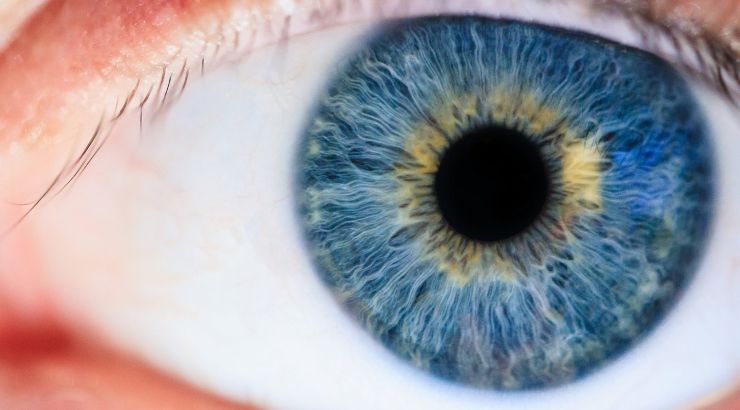
Staring Into Somebody's Eyes for 10 Minutes Can Alter Your State of Consciousness
(TMU) — You may have heard the term “piercing eyes,” but what if someone’s gaze was so penetrating that it managed to induce an altered state of consciousness?
Well, according to one psychologist, staring into somebody’s eyes for about 10 straight minutes can cause you to have “out of body” experiences, hallucinations, and visions of loved ones who aren’t present. (Personal note: This is absolutely true and is something utilized in Scientology training.)
The experiment, conducted in 2015 by Dr. Giovanni Caputo of Italy’s University of Urbino, was conducted in a dimly lit room where 20 volunteers sat in pairs while staring intently into one another’s eyes for ten minutes.
While the lighting was bright enough to clearly make out their counterparts’ facial features, the dimness was such that their overall perception of color was weakened, according to British Psychological Society journal Research Digest.
In the meantime, another group of volunteers sat in pairs while facing a blank wall. Participants weren’t given much information about the experiment’s purpose beyond that it involved a “meditative experience with eyes open,” Science Alert reports.
Following the 10-minute exercise, volunteers completed questionnaires about what they experienced.
One questionnaire asked them about any potential feelings of disassociation or detachment they may have felt from their surroundings, while another questioned them about what they saw in the face of their partners or their own face.
Those who stared into their partners’ eyes reported that they had felt different than before, and even began to lose their connection with reality.
Christian Jarrett wrote for Research Digest:
“The participants in the eye-staring group said they’d had a compelling experience unlike anything they’d felt before.”
For the eye-staring group, sounds seemed either quieter or louder than expected, time seemed to be stretched out, and a general “spaced-out” feeling took hold of their psyche.
Jarrett explained:
“On the dissociative states test, they gave the strongest ratings to items related to reduced colour intensity, sounds seeming quieter or louder than expected, becoming spaced out, and time seeming to drag on. On the strange-face questionnaire, 90 percent of the eye-staring group agreed that they’d seen some deformed facial traits, 75 percent said they’d seen a monster, 50 percent said they saw aspects of their own face in their partner’s face, and 15 percent said they’d seen a relative’s face.”
Participants described massive deformations of their own faces, the faces of alive or dead parents, animal faces, and even faces belonging to archetypal figures such as old women, children, or ancestors’ portraits. Many of the faces that were unfamiliar conjured feelings of “otherness,” while some participants felt strong emotions throughout their journey, according to Scientific American.
Dr. Caputo noted in his paper published by the journal Psychiatry Research:
“These results indicate that dissociative symptoms and hallucinatory phenomena during interpersonal-gazing under low illumination can involve different processes.”
A previous study by Caputo in 2010 involved 50 volunteers staring at themselves in a mirror. That paper reported that in under a minute of staring at their own faces, they began seeing what Caputo called the “strange-face illusion.”
Authors Susana Martinez-Conde and Stephen L. Macknik explain that what Caputo has stumbled upon is what’s called neural adaptation, a process by which our neurons keep pace with stimulation either by slowing down or stopping their responses.
When we stare at a scene or object for any extended period of time, our perceptions begin to fade out of sight until either we blink or the scene changes – or we have the tiny involuntary eye movements known as microsaccades, which restore our perception instantly.
By Elias Marat | Creative Commons | TheMindUnleashed.com
Read More... https://themindunleashed.com/2019/09/staring-into-eyes-10-minutes-alter-consciousness.html










